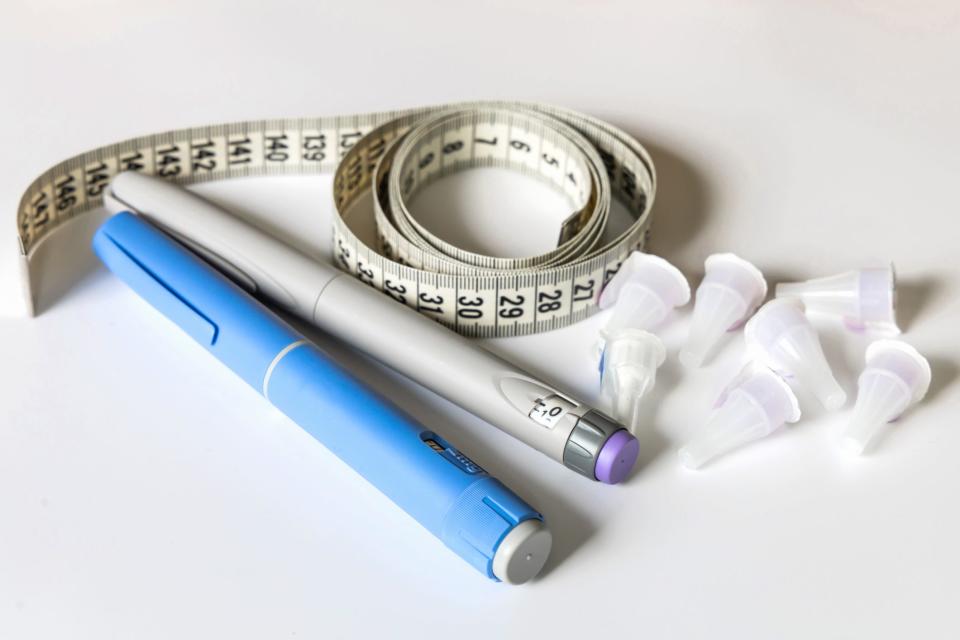Ozempic for kids? Pharma manufactures test weight loss drugs for children as young as 6
The blockbuster weight loss sensations that have taken the industry by storm may soon be available for kids as young as six.
The manufactures of Ozempic/Wegovy and Mounjaro, the injectables that are raking in hundreds of millions of dollars after showing remarkable weight loss benefits, have reported intentions to begin marketing the drugs to children between the ages of six and 11 or 12.
Both companies are in different phases of assessing the safety and efficacy of the drugs for the treatment of pediatric obesity, while adults continue to flock to pharmacies to snag the now hard-to-find products in the meantime.
Cincinnati Enquirer news app: 5 reasons to download the Cincinnati.com news app
While simply targeting the number on the scale is far from a complete solution to the underlying issues causing higher rates of weight and nutritional concerns in American youth, pharmaceutical companies Eli Lilly and Novo Nordisk are looking to add another potential option to toolboxes hoping to address the issue.
According to the CDC, children and adolescents ages 2-19 had a 19.7% obesity rate in the years 2017-2020, affecting 14.7 million children and adolescents. While the qualifying factors for an obesity diagnosis, such as BMI, are debated in the medical community, data consistently shows that socioeconomic status and food insecurity directly relate to rates of obesity in America's youth. In 2019–2020 alone, 10.8% of children ages 0–17 years lived in households that experienced food insecurity.
Drug tests overlook overweight people: For the 40% of Americans with obesity, medications may be given at wrong dose

Manufactures of Ozempic, Mounjaro turn to kids
Pharmecutical companies Eli Lilly and Novo Nordisk, producers of Mounjaro and Ozempic/Wengovy, respectively, are both testing weight loss products for use in kids ages six and up, Bloomberg first reported. Eli Lilly is in the first phase of testing, studying kids ages 6-11 with a trial of 30 patients given Mounjaro and monitored over the course of 13 weeks.
Novo Nordisk has been in the testing phase for two years and is now in phase three, having given drug Saxenda - a less potent version of Wegovy - to children with obesity ages 6-12 years old in a relatively small trial of less than 100 participants. This trial also included advice on healthy eating and staying active given by pediatricians to participants.
What is Ozempic face: Ozempic face? Don't use the term. It's offensive and unhelpful.
What are GLP-1 shots?
Popular drugs known by name brands including Ozempic and Wegovy were originally formulated and prescribed for the treatment of diabetes. As previously reported by USA TODAY, Ozempic and similar drugs mimic the hormone GLP-1, which helps the pancreas release insulin.
These medications work by sending signals to the appetite center of the brain, reducing feelings of hunger and increasing feelings of fullness.
While drugs such as Ozempic, Wegovy and Mounjaro can help users lose 15% to 20% of their body weight on average, the medical community is still exploring the long-term implications and efficacy.
The drugs need to be used continually to maintain effectiveness, and most people end up regaining a good portion of the weight loss after discounting treatment. This yo-yoing can have long term effects on overall health, and more potentially dangerous symptoms also plague users, including an increased risk of thyroid cancer, acute pancreatitis, stomach paralysis, gallbladder disease, low blood sugar, kidney injury, damage to the eye's retina and suicidal thinking or behavior. More common side effects include things like nausea, diarrhea and constipation.
Using these drugs for weight loss has become so popular internationally that supply issues have arisen from the massive demand, impacting people who use the medications to manage diabetes. Belgium recently announced plans to temporarily ban the use of Ozempic for weight loss in order to preserve the limited supply for diabetics, while officials in the U.K. and EU have begun warning against circulating knock-off treatments that pose a serious health risk.
This article originally appeared on USA TODAY: Ozempic-style weight loss drugs could soon be for kids as young as six

